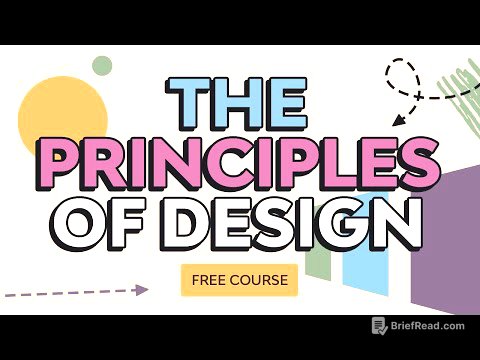TLDR;
This YouTube video features a discussion with Ömer Kuru about Risale-i Nur, focusing on the concept of "Ene" (ego) and its significance in understanding the Quran and the universe. The conversation explores the nature of energy given to humans, the difference between "ene" and ego, and how understanding the ego can unlock deeper insights into divine names and attributes. The discussion also touches on the concept of trust (amanet) given to humans and the importance of using one's faculties to recognize God.
- The concept of "Ene" (ego) and its significance in understanding the Quran and the universe.
- The nature of energy given to humans and its role as a key.
- The difference between "ene" and ego.
- The concept of trust (amanet) given to humans.
- The importance of using one's faculties to recognize God.
Introduction to Risale-i Nur and the Concept of Ene [0:00]
The program begins with an introduction to Ömer Kuru, who will discuss Risale-i Nur over a series of sessions. The initial discussion revolves around the concept of "Ene," which translates to "my property, I did it." The question is posed: Why has God given humans this sense of self or ego? Is it a form of capital or a test? The discussion aims to explore the nature of this energy and its purpose in human existence, setting the stage for a deeper examination of the subject in subsequent sessions.
The Significance of the 30th Word and the Talisman of the Universe [4:42]
Ömer Kuru introduces the 30th Word from Risale-i Nur, which is described as solving an important talisman of the All-Wise Quran and discovering the talisman of the universe. The Quran reads the universe from God's perspective, revealing the meaning and significance of existence. "Ene" is presented as a key to understanding the Quran and the universe, requiring individuals to unravel the secret of the ego and its relationship to the cosmos. This understanding is crucial for comprehending the creator through the universe.
Differentiating "Ene" from Ego and Understanding the Soul [7:33]
The discussion addresses the critical distinction between "ene" and ego, noting that direct translations can cause ambiguity. It emphasizes the importance of understanding the limits and frameworks of both concepts, exploring how Bediuzzaman Said Nursi approached "ene" in Risale-i Nur. The conversation highlights a mystical expression: "the key to the universe is in the hands of man, stuck in his ego," stressing the need to understand the soul as Bediüzzaman describes it to grasp the sentence's deep meaning.
The Trust (Amanet) Offered to the Heavens, Earth, and Mountains [11:17]
The discussion shifts to a verse from the Quran about the Trust (Amanet) that was offered to the heavens, earth, and mountains, but only man accepted it. This trust encompasses everything a person possesses, including "ene." The reference to mountains, skies, and earth is linked to an 11th saying, emphasizing that God cannot be contained by the sky or the earth but fits into the heart of a believing servant. This highlights the human being as the most perfect mirror among creation, reflecting God's names and attributes.
Ignorance and Cruelty in the Context of the Trust [17:45]
The verse continues by noting that man is "very cruel and ignorant." This ignorance stems from not knowing one's reality and how to be a proper mirror. Cruelty is defined as not using one's abilities in a way that makes God known. The interpretation of Sıratı Mustakim (the straight path) is introduced, explaining that using abilities at three different levels—understatement, extreme, and average—determines whether one is on the right path. The goal is to use one's faculties in a way that introduces and reflects God Almighty.
Ene as the Seed of the Tree of Tuba and the Tree of Zaqqum [26:09]
"Ene" is described as the seed of both a luminous rose garden (Tuba) and a formidable rose garden (Zaqqum), representing the two branches of the tree of humanity. This underscores the critical role of "ene" in determining a person's eternal outcome. The discussion emphasizes the need to thoroughly examine and understand "ene," as it is the key to divine names and the talisman of the universe. Understanding "ene" unlocks the secrets of existence and facilitates knowledge of God.
The Key to the Universe and the Understanding of the Soul [31:54]
The conversation highlights that the key to the universe is in the hands of man and attached to his soul. Bediüzzaman's understanding of the soul differs from classical Sufism, where the soul is handled in seven degrees. In Bediüzzaman's view, there are two souls: one that commands evil (ammara) and one that is at peace (mutmainne). Using one's abilities to know Allah leads to a peaceful soul, while using them independently of Allah leads to the evil-commanding soul.
The Concept of the Believing Soul and the Importance of Correctly Deciphering Texts [35:51]
The discussion introduces the concept of the "believing soul," which is not a separate level of soul but rather the face that defines Allah. It emphasizes that for progress in the truths of faith, texts must be correctly deciphered, and concepts must be understood accurately. The story of Zübeyir brother is shared to illustrate how even familiar texts can reveal new perspectives when approached with a deeper understanding.
The Human Soul and the Doors of the Universe [41:02]
The human soul, combined with the ego, is a characteristic that affects all material and spiritual aspects of the soul. The doors of the universe appear open but are closed because the meaning and significance of things are not understood in relation to God. Materialistic approaches to the universe, without grasping the relationship of the Names with the Creator, fail to penetrate the interior of objects. God has given man a key in his ego to open all the doors of the universe and discover the hidden secrets of the creator.
The Relationship Between Humans and the Universe and the Tree of Tuba and Zaqqum [47:41]
The discussion emphasizes the relationship between humans and the universe, where humans are a small universe and the universe is a great man. By comparing the manifestations and characteristics within oneself with the reflections in the universe, one can increase their knowledge of God's names. The Tree of Tuba and the Tree of Zaqqum represent the different degrees of God's names and attributes, reflecting the diverse responses and choices of humanity. God creates for Himself, and the universe is a manifestation of His desire to be known.









